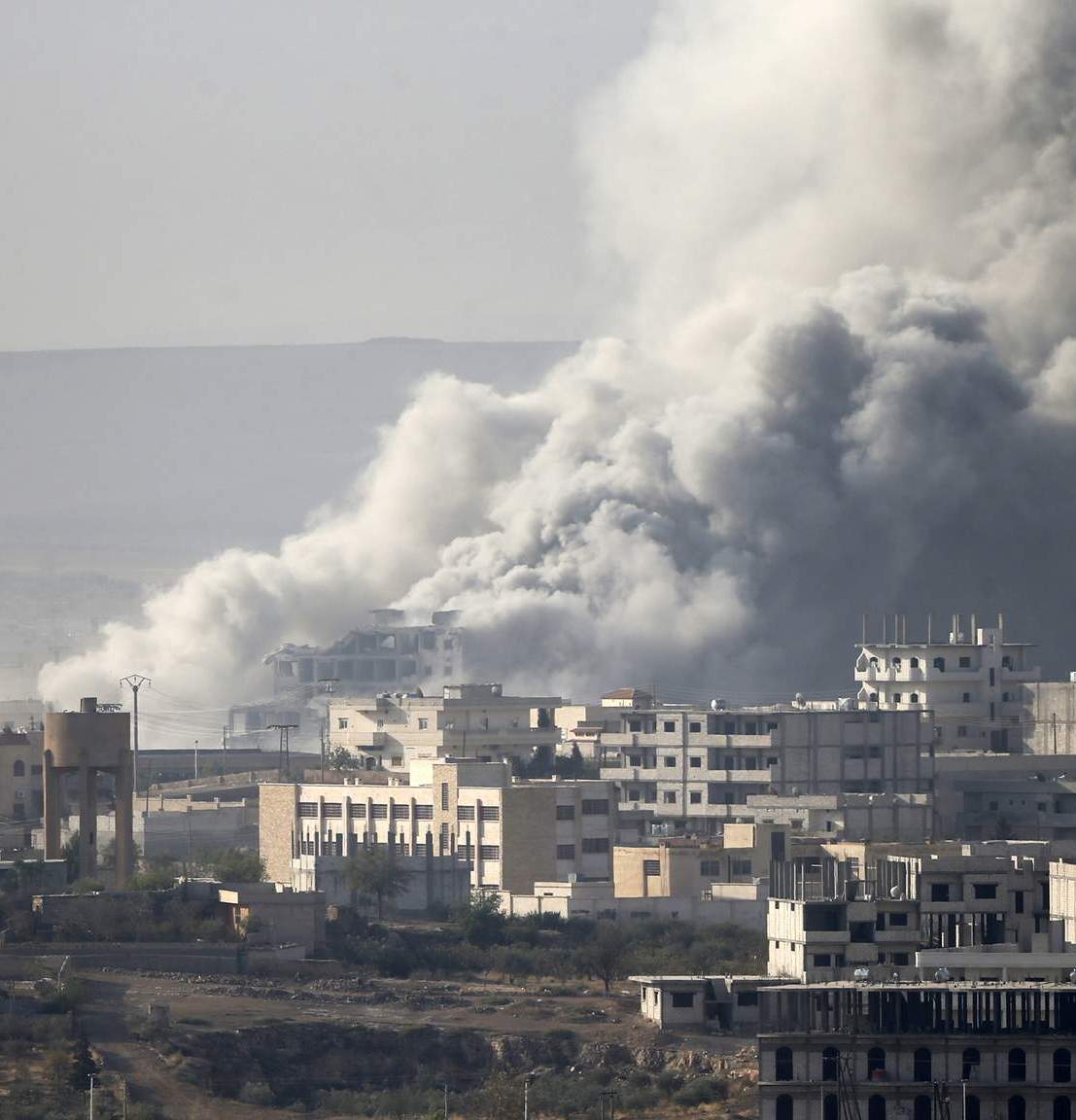US airdrops weapons and supplies for Kurds fighting IS near Kobani
The U.S. airdropped weapons and supplies for Kurdish forces fighting Islamic State (IS) in the town of Kobani in Syria on Monday. A statement from US Central Command said Air Force C-130 planes “delivered weapons, ammunition and medical supplies that were provided by Kurdish authorities in Iraq and intended to enable continued resistance against ISIL’s (IS) attempts to overtake Kobani”. Multiple airdrops were completed near the town, which is close to the border with Turkey and would be seen as a strategic coup for IS if it is captured. Kurdish forces said they had received a “large quantity of ammunition” from the US airdrop.
It will have a positive impact on the course of military operations and certainly we are still hoping for more support.
Kurdish spokesman Redur Xelil
The U.S. statement said 135 airstrikes near Kobani - combined with continued resistance on the ground - had slowed IS advances and killed hundreds of its fighters. “However, the security situation in Kobani remains fragile as ISIL continues to threaten the city and Kurdish forces continue to resist,” the statement added. The Kurds have been under IS assault for more than a month - and U.S. Commander General Lloyd Austin has warned that the city could fall. Turkey views the main Kurdish group in Syria as an extension of the Kurdistan Workers’ Party (PKK), an organisation that has waged a 30-year insurgency in the country. The PKK is designated a terror group by the US and NATO. However, airdrops are likely to anger key ally Turkey, which has said it would oppose the US helping to arm Kurdish rebels.The statement said 135 U.S. airstrikes near Kobane - combined with continued resistance on the ground - had slowed IS advances and killed hundreds of its fighters. The Kurds have been under IS assault for more than a month - and U.S. Commander General Lloyd Austin has warned that the city could fall. However, airdrops are likely to anger key ally Turkey, which has said it would oppose the U.S. helping to arm Kurdish rebels. Ankara views the main Kurdish group in Syria as an extension of the Kurdistan Workers’ Party (PKK), an organisation that has waged a 30-year insurgency in Turkey. The PKK is designated a terror group by the U.S. and NATO. Turkey has resisted pressure from the West to take a more direct role in fighting IS in Kobane.

Middle East kobani